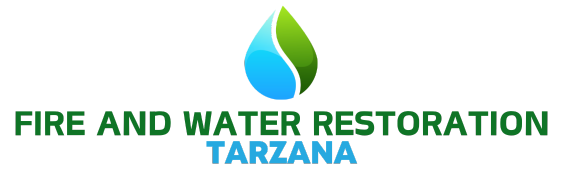Experiencing a fire or flood at home can be devastating and frightening, leaving you overwhelmed and uncertain about your next steps. Knowing exactly what to do immediately after such an event can significantly reduce further damage and ensure the safety of you and your family. Here’s a clear and actionable guide to help you respond effectively after a fire or flood.
Ensure Safety First
Above all else, confirm that everyone is safe and unharmed. If you’ve experienced a fire, remain outside the premises until emergency responders have deemed the area safe. In the event of a flood, avoid moving through any standing water, especially if electricity is still active, due to potential electrocution hazards.
Contact Emergency Services Promptly
If emergency services haven’t been contacted already, call them immediately. For fires, promptly alert the fire department, even if the fire appears extinguished. For flooding incidents, reach out to local emergency management services to request assistance, evacuation, or rescue if needed.
Document the Damage Thoroughly
After confirming everyone’s safety, it’s crucial to document all damage thoroughly. Capture clear and detailed photos or videos of the damaged areas, including walls, ceilings, floors, appliances, furniture, and personal belongings. Comprehensive documentation will be invaluable when filing insurance claims and coordinating repairs.
Inform Your Insurance Provider
Reach out to your insurance company without delay. Provide the documentation you’ve gathered and follow their guidelines meticulously. Timely notification is often required by insurers, who have specific procedures for managing disaster-related claims.
Secure Your Home Against Further Damage
Taking steps to secure your property can prevent additional harm. In the aftermath of a fire, board up windows or doors as necessary to protect your home from theft or adverse weather conditions. After flooding, if safe to do so, turn off electricity and gas services at the main control points to minimize further risks.
Evaluate Structural Safety
Do not enter your home until emergency personnel or a qualified inspector confirms structural stability. Fires can severely weaken structural elements such as beams and walls, whereas floods may compromise the foundation or flooring integrity. Professional evaluation is crucial before re-entry.
Arrange for Temporary Housing
If your home cannot be occupied safely, quickly arrange alternative accommodations. Check with your insurance company to determine if temporary housing expenses are covered under your policy. Local disaster relief organizations can also provide immediate assistance with finding temporary shelter.
Start Cleanup Efforts Carefully
Once professionals have cleared your home for safe entry, initiate cleanup with caution. When cleaning after fire damage, ensure adequate ventilation and always wear protective gear, such as masks and gloves, to guard against inhalation of harmful substances. For floods, promptly remove standing water using pumps or wet vacuums, and wear waterproof boots and protective gloves to minimize health risks.
Properly Dispose of Damaged Belongings
Clearly separate items that can be salvaged from those that must be discarded. Items severely damaged by fire or contaminated by floodwaters—like upholstered furniture, carpets, and insulation—should be disposed of according to local regulations.
Engage Professional Restoration Services
Professional restoration companies can significantly enhance the recovery process, employing specialized tools, expertise, and proven methods to effectively restore your property. These experts manage complex tasks such as soot removal, smoke odor mitigation, water extraction, drying, and mold remediation.
Address Immediate Health Concerns
Fire and flood disasters carry potential health hazards. Smoke inhalation from fires can cause significant respiratory issues, while floodwaters often harbor harmful bacteria, chemicals, and sewage. Seek medical attention immediately if anyone in your family exhibits health problems following these events.
Seek Emotional and Psychological Support
The emotional trauma associated with such disasters can be significant and lasting. Feelings of stress, anxiety, depression, or trauma are common reactions to substantial property loss or disruption. It’s important to seek support through counseling or community support groups to manage emotional and psychological impacts effectively.
Communicate Clearly With Repair Contractors
When selecting contractors for repairs or restoration, maintain clear communication regarding your expectations, timelines, budget constraints, and insurance requirements. Secure written estimates and agreements to avoid potential misunderstandings and disputes.
Prevent Future Disasters
Taking proactive measures to protect your home against future events is essential. Regularly test smoke alarms, maintain easily accessible fire extinguishers, and consider using fire-resistant materials in construction. To prevent future flooding, ensure effective drainage systems, landscape properly to direct water away from your home, and verify foundation integrity.
Taking immediate and organized action following a fire or flood is critical for effective recovery. Prioritize safety, adhere to structured steps, enlist professional help when needed, and remember that emotional well-being is just as essential as physical restoration.
